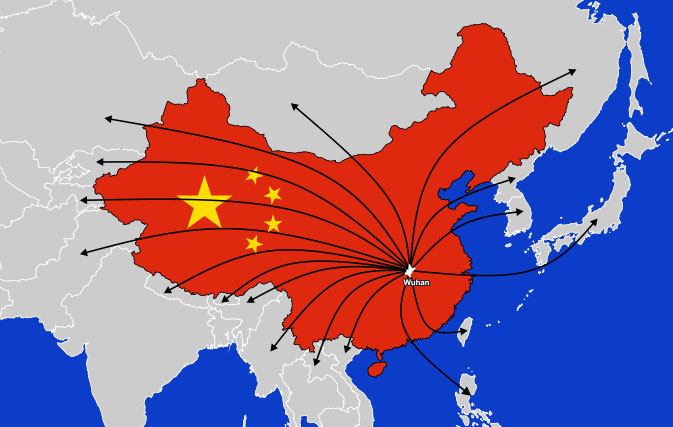TORONTO — Air Canada, which offers direct flights to Beijing and Shanghai from Toronto, Montreal and Vancouver, as well as to Wuhan through a partner, is allowing passengers to rebook flights to the Chinese cities free of charge.
Updated today, Air Canada’s notice for passengers flying to Beijing (PEK) and Shanghai (PVG) applies to tickets issued no later than Jan. 28 for travel Jan. 24 – Feb. 29. Passengers can rebook free of charge until April 15.
Air Canada had previously waived change fees for Wuhan (WUH) for tickets issued no later than Jan. 21, for travel Jan. 22 – March 29. Those passengers can rebook free of charge until June 15.
So far Canada is not planning to airlift out any Canadian citizens. Meanwhile the U.S. and several other nations prepared Tuesday to airlift citizens out of Wuhan.
Hong Kong’s leader said it will cut all rail links to mainland China and halve the number of flights as authorities in China and overseas sought to stem the spread of the new virus. The number of confirmed cases rose to more than 4,500.
The U.S. government chartered a plane to fly out diplomats from the U.S. Consulate in Wuhan, where the outbreak started, and other Americans. The plane will make a refuelling stop in Alaska before flying on to Ontario, California, the U.S. Embassy said.
A Japanese-chartered Boeing 767 departed for Wuhan to fly out its citizens, the first of two possible flights, and South Korea also said it will send a plane to the city in central China. France, Mongolia and other governments also planned evacuations.
China has cut off access to Wuhan and 16 other cities in Hubei province to prevent people from leaving and spreading the virus further. The lockdown has trapped more than 50 million people in the most far-reaching disease control measures ever imposed.
Hong Kong leader Carrie Lam, wearing a green surgical mask, told a news conference that train service would stop at midnight Thursday and that the two stations connecting to the mainland would be closed.
She stopped short of a total closing of the border, as North Korea and Mongolia have done, but said ferry and bus service to the mainland would also be suspended.
China’s death toll from the new viral disease rose to 106, including the first death in Beijing, the Chinese capital, and 24 others in Hubei province, where the first illnesses were detected in December.
There were 1,771 new cases confirmed in China, raising the national total to 4,515, according to the National Health Commission. It said 976 people were in serious condition.
The sharp rise in infections in recent days suggests there has been significant human-to-human spread of the virus, though it could also be explained by expanded monitoring efforts, said Malik Peiris, chair in virology at the University of Hong Kong.
Peiris, an adviser on the World Health Organization’s coronavirus emergency committee, said it is reassuring that outside of China the disease has not spread widely beyond the people who brought it from Wuhan.
The new virus causes cold- and flu-like symptoms, including cough and fever, and in more severe cases, shortness of breath and pneumonia.
A Canadian teacher who lives in Wuhan says he has no plans to leave.
Wayne Duplessis says he and his family are hunkered down in their home just outside of Wuhan’s city centre. He, his wife, Emily Tjandra, and their 15-year-old son Wyatt have spent the last two weeks chatting with people online, watching videos, movies, and the news, and listening to music.
Some Canadians in Wuhan have called on the federal government to send a flight to get them out, but Duplessis says he doesn’t think it’s wise to spend hours in the air with people who could be sick.
Dr. Theresa Tam, Canada’s chief medical officer, has said symptoms of the new coronavirus are similar to those of the common flu and it can take up to two weeks for an infected person to start showing signs.
“You’re taking a big chance,” Duplessis said in a Skype interview from China. “You put people into a container with recycled air, where even three or four of them might be asymptomatic – the risk is too great.”
China has confirmed more than 4,500 cases of the new virus, with more than 100 deaths. Most have been in the central city of Wuhan where the outbreak began in December.
Duplessis is originally from Espanola, Ontario.
With files from The Canadian Press and The Associated Press
